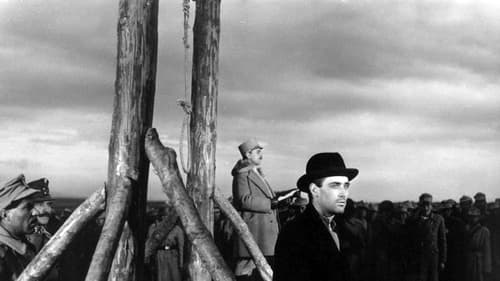Mariana Mihuț
Nacimiento : 1942-11-07, București, România

Aunt Florica
American professor Robert Traum embarks on an adventurous and amusing journey through Bucovina to find Sami the projectionist, the only person alive that can tell him anything about his Romanian Jewish descent. His symbolic journey is filled with danger, the unknown and the surreal, but finally rewarded with a double love: on the one hand he finds romantic love, on the other the passion for old cinema, nomad, popular, naive and generous.

The life-story confession of a prisoner waiting for his trial. Victor Petrini, a promising intellectual in the 1950s and a lecturer in Philosophy is arrested by the repressive secret police, wrongly accused of espionage, and sentenced to prison and forced labor.

Priest's wife
A description of Romania before Ceausescu's downfall, through the story of Nela. Daughter of a former colonel of the Securitate, the romanian political police. She refused to become as her sister, an agent of this Securitate, and lives with her father. After he died, she leaves Bucharest, and ends up in a little town, where she meets Mitica, a surgeon, another herself, laughing of everything.

Nora
An uncompromising journalist obsessed with the idea of absolute justice ends up committing suicide after reading his father's biography. Based on three novels by Camil Petrescu.

Aglae
Two artists, father and son, are at odds regarding the meaning of their art.

Drama directed by Visarion Alexa.

Luminița
The 17-year-old Amalia, the daughter of a widower lumberjack with many children, falls in love with a soldier. An irresponsible young man, the soldier refuses to admit that he is the father of the child to be born, as Amalia was just a fling in his eyes. Amalia decides to raise the kid all by herself, but she soon changes her mind…

Mita Baston
Based on a theatrical text by Romanian writer Ion Luca Caragiale (1852-1912), who was a bitter and funny witness of the turn-of-the-20th-century Romanian bourgeois mores, Carnival Scenes manages to preserve and further enhance the slightly hysteric atmosphere of his plays. Pintilie creates a strange combination of carnival scenes which is brought to the screen as a burlesque, fast-paced, screwball comedy with a meditative undertone. This film was banned in Romania for a decade until the death of Ceausescu in 1989 and was only released after the 1989 revolution.

Anca Ionescu

Iulia
Inspired by the Moisei massacre in 1944 northern Transylvania.

Zoe Trahanache
The plot take place in 1883 in a small provincial town in Romania, where the corrupt establishment decide everything, including - of course - who will be the "elected" representative to the national Senate. A love letter from the bachelor mayor to the wife of the local party chief, gets lost and found by a drunk party supporter. The letter finds its way to the opposition party, which decide to use the letter by blackmailing the powerful local "camarilla", and to get his own man to represent the county. What follows is not easy to guess...

Ilinca
During the 18th century when Moldavian Prince Dimitrie Cantemir writes The History of the Rise and Fall of the Ottoman Empire the manuscript is stolen and offered to the highest bidder.

Collector's Wife
Pacala is an important hero in Romanian popular tradition. He is always making fun of everything wrong with the human behaviour such as stupidity, greed or vanity. His attitude and actions always bring damages to the mean, evil and materialistic people. So beside the jokes, the movie has this philosophical layer, undoubtedly because Pacala's independent way of being, free spirit and his love for the nature creates a way of seeing life, bringing joy. Filmed in a very beautiful part of Romania in 1974, the movie had an important success at that time and it is considered one of the most loved movies in Romania ever. Like the hero, found in many stories and jokes, the movie forwards the spirit of true freedom and pure link with the nature, forgetting about times and governments.

Silvia
After defeating some Iron Guard gangs in Bucharest, those who survived were hiding somewhere in the mountains. Several bloody events took place in one of the smaller villages. In the unequal struggle with criminals entered the former police commissioner who meanwhile became a Major in Romanian Communist Police, Mihai Roman.

A propaganda movie about the confrontation between the communists and secret police, legionaires in Romania.

A young man leaves home after graduation from high school to make his way in the world and seek his independence. The story is told in flashbacks as the opening scene shows the man suffering injuries from a fall during his construction job as a welder.

In 1916 as an officer in the Habsburg Army ethnic Romanian Apostol Bologa is torn between remaining loyal to the Habsburgs or deserting to the Romanian Army across enemy lines.











